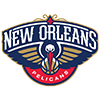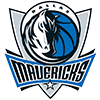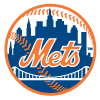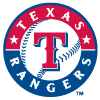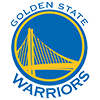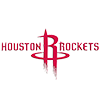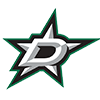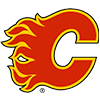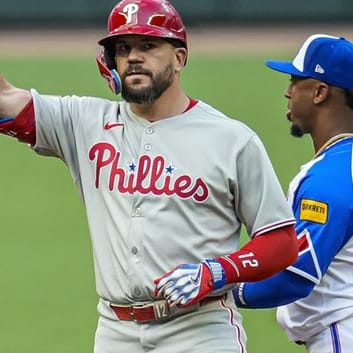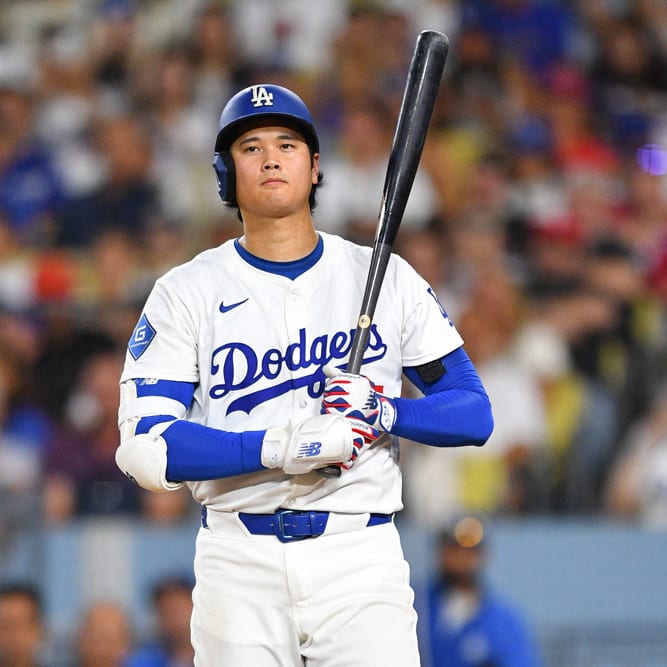Bryce Harper and Kyle Schwarber
Last Thursday's loss to the Marlins proved costly as both Harper and Schwarber suffered lower extremity strains. Harper came up limping after running out a grounder to first base and was removed from the game. The injury was later determined to be a hamstring strain, with further testing classifying the severity as a low-grade or Grade 1 strain. This grade is utilized when the accrued damage is limited to the microfibers of the muscle tissue, meaning no significant tearing has occurred. Harper has been placed on the 10-day injured list and would be eligible to return July 9.
Schwarber's strain involved his left groin. Like Harper, the injury was considered a mild or low-grade injury and there is optimism the veteran will miss the minimal amount of time.
While both injuries received a Grade 1 classification, it's worth mentioning that location of the mild damage still matters. Skeletal muscle is made up of the true muscle tissue and the connective tissue that anchors it to the appropriate place on the body. Tendons are the most common type of connective tissue, though some muscles utilize a thinner, sheet-like structure known as an aponeurosis. Strains in the muscle tissue often healer smoother as they generally receive a healthy supply of blood.
There has been no indication either Phillies player suffered a tendon-related injury, but I still expect the team to handle both recoveries conservatively. The Phillies currently hold an eight-game lead on the Braves in the NL
Bryce Harper and Kyle Schwarber
Last Thursday's loss to the Marlins proved costly as both Harper and Schwarber suffered lower extremity strains. Harper came up limping after running out a grounder to first base and was removed from the game. The injury was later determined to be a hamstring strain, with further testing classifying the severity as a low-grade or Grade 1 strain. This grade is utilized when the accrued damage is limited to the microfibers of the muscle tissue, meaning no significant tearing has occurred. Harper has been placed on the 10-day injured list and would be eligible to return July 9.
Schwarber's strain involved his left groin. Like Harper, the injury was considered a mild or low-grade injury and there is optimism the veteran will miss the minimal amount of time.
While both injuries received a Grade 1 classification, it's worth mentioning that location of the mild damage still matters. Skeletal muscle is made up of the true muscle tissue and the connective tissue that anchors it to the appropriate place on the body. Tendons are the most common type of connective tissue, though some muscles utilize a thinner, sheet-like structure known as an aponeurosis. Strains in the muscle tissue often healer smoother as they generally receive a healthy supply of blood.
There has been no indication either Phillies player suffered a tendon-related injury, but I still expect the team to handle both recoveries conservatively. The Phillies currently hold an eight-game lead on the Braves in the NL East and need a healthy Harper and Schwarber to maintain their title pursuit. Fortunately, neither player has a lengthy history of lower extremity strains, and a patient approach should allow them to return with minimal risk of reinjury.
Juan Soto, Carlos Correa, Vladimir Guerrero, and Corey Seager
A Murderers' Row of AL hitters suffered hand injuries over the last week, leaving gaping holes in fantasy lineups.
Soto's hand injury occurred when he slid into a base while Correa, Guerrero and Seager were all struck by rogue pitches. Initial X-rays performed on each of their injuries failed to show a fracture, though all four are expected to undergo additional testing. X-rays performed immediately after a hand or wrist injury has occurred may miss breaks to the tiny bones of the area. As a result, more complex imaging techniques like an MRI or a bone scan may be utilized.
Soto and Correa have both returned to action since suffering their respective injuries, though admittedly they are still managing associated symptoms. Guerrero and Seager are both considered day-to-day, and those invested here can only hope subsequent testing finds similar results.
I will use the opportunity to join the call led by my friend and former Rotowire contributor Will Carroll for more players to don padded gloves while at the plate. It's a simple approach that greatly reduces the risk of a significant injury occurring. It's a lot cheaper to prevent an injury from occurring than it is treat one, especially one that results in time lost.
Last week I mentioned the Padres slugger could miss a game or two, not because of his triceps injury, but for the lingering soreness in his quadriceps. Unfortunately, things were far worse than feared, as additional testing on Tatis' leg revealed an injury to the bone beneath the quad muscle. Tatis' official diagnoses is a femoral stress reaction. As previously discussed with players like Evan Carter and Jesus Luzardo, a stress reaction is a precursor to a stress fracture. Recovery requires the activity resulting in the injury to be halted and time allotted for the body's natural healing response to appropriately remodel the injury site. This takes time, and a multiweek absence is likely a best-case scenario. Furthermore, the injury is extremely rare in baseball, meaning there aren't good comparisons to examine. The Padres medical team will force Tatis to rest while examining everything from his muscle movement patterns to his footwear to pinpoint any underlying causes for the development of the injury. A return after the All-Star break seems likely.
Check Swings
Yu Darvish: The Padres right-hander resumed playing catch as he progresses through a throwing program. Darvish has not pitched since he developed inflammation in his right elbow during his rehab for a left groin injury. The groin ailment appears resolved, and San Diego will now begin the task of building his arm back up. Any recurrence of symptoms could reset the process, but for now Darvish is trending in the right direction. Despite the progression, he remains without a definitive timetable.
Nick Lodolo: The blister on his left index finger was significant enough to force Lodolo to the IL. The Reds pitcher admitted the blister impacted his delivery of his curveball, though he believes he will back when first eligible. He has dealt with the problem before, missing more than three weeks in 2021 with a blister in the same area. This blister is not as bad, but Lodolo's return seems more fluid than he suggests.
Gabriel Moreno: The Diamondbacks are expected to welcome back Moreno Tuesday. Moreno has not played since June 21 due to a sprained left thumb. The digit held up in a rehab game over the weekend and Moreno should be fine moving forward. Veteran Tucker Barnhart was designated for assignment, making Jose Herrera the primary backup catcher in Arizona.
Blake Snell: The San Francisco left-hander is expected to make a second rehab start with Triple-A Sacramento this week in hopes of returning to the Giants rotation by next week. It's been a rough start to the season for Snell, but a stretch of sustained good health should help him return closer to form.
Mike Trout: The Angels outfielder provided an update on his status over the weekend. Trout, out since undergoing surgery for a torn meniscus, said he's pain-free and expects to return by the end of July. He has not resumed running yet but his activity level should pick up quickly when he is given the all-clear by team medical personnel. Trout's absence has extended longer than initially expected, but at long last there is a target date in sight.







